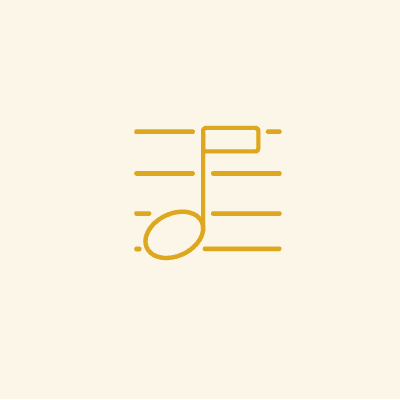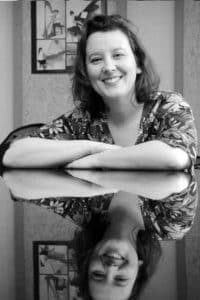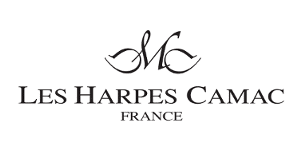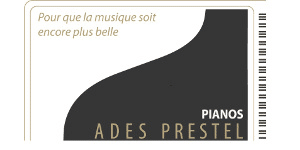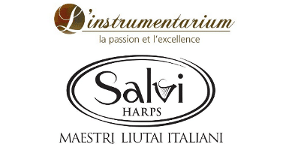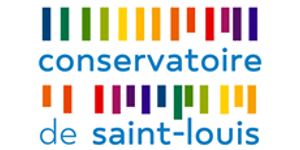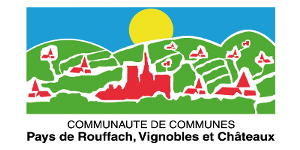Free access
The music academy Musicalta offers a number of free activities open to all students in addition to the main courses, including:
- Access to the Musicalta Music Festival concerts
- Singing and choral workshops
- Large string ensemble
- Physical awakening activities every morning
- Composition workshops (composer’s pieces performed)
- Lectures
Main disciplines or options
Options
Holistic coaching* (Session 1)
*taking into account all aspects of human life
“Tant que vous n’aurez pas rendu l’inconscient conscient, il dirigera votre vie (…)”
Carl-Gustav Jung
An interesting vision consists in perceiving each and everyone as a reflection of oneself, as a source of teachings and an opportunity to evolve.
In this way, we all benefit from one another’s life experiences (or we make each other suffer because of them…)
The more you clarify your psychology, the more you work on yourself, the more your capacity to listen to the other increases, as well as your lucidity. It is simple mathematics. The more we spend time with an other person, the more we influence each other.
The various techniques and traditions I have been studying and practicing for almost 10 years are basically ways to understand why our heart is not opened as much as it could and how to heal that, and eventually thrive. Again, it is simple : what percentage of ourselves remains in the shadows, what percentage is in the light ?
The two main tools I use are called Human Design and the Gene Keys. They are systems that synthesize ancestral wisdom (from ancient China and India as well as from various mystical and chamanic traditions) with modern and scientific understandings of reality (mainly epigenetics : how our behaviour affects the expression of our genes).
Thanks to the analysis of your profile – obtained thanks to your date, hour (if known) and place of birth – we will witness the birth of an ocean of understanding and acceptation like there are few in one’s lifetime ! And often, the essential themes of gratitude, forgiveness and self-confidence follow shortly.
On a personal level, these are the most powerful sources of evolution I ever came across.
After the first session, you can easily carry on by yourself or with my help for a little while. A key point is the temporary place those systems are destined to take in one’s life : once you have found the source of wisdom within, you don’t need them anymore.
Beyond the free profile found on the internet (which you can already do at genekeys.com or ihdschool.com*), you will be invited to fill in a questionary regarding your life path, your level of happiness (in every aspect of your life) and your life purpose.
* the Gene Keys are more accessible to the newcomer than Human Design
Looking forward to meeting you, Warm regards,
Sinclair Smith-Devemy
“The XXI century will be spiritual or it will not take place”
André Malraux
Class content
Group sessions happen 3 times during the 10 days
Private classes are on demand
Simple option : the student can attend 2 group sessions and one 30 min private session
Reinforced option : the student can attend the 3 group sessions and two 45 min private sessions
Sinclair Smith, professeur de Yoga assurera l’enseignement du coaching holistique.
Feldenkrais (Session 2)
The Feldenkrais Method aims to develop proprioception (perception of oneself), the kinaesthetic sense (the ability to feel and remember one’s movements) and the inner visualisation of movement, which makes it particularly relevant for musicians and artists.
As the lessons progress, the benefits are quickly perceptible in the development of musical playing: the body remembers the sensory experiences and movement patterns that give it greater ease and reuses them even outside the field of consciousness.
Organisation of lessons :
Simple option: 45-minute group classes (preferably in the morning)
Enhanced option: access to all group classes + 1 group workshop of 1h30 + 1 individual class.
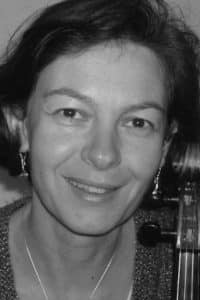
She teaches Feldenkrais in conservatoires, for students or teachers, in the form of master classes or weekly individual or group classes. The Feldenkrais method permeates her teaching, in the form of an approach that emphasises the search for feeling, and allows her to introduce a form of creativity into her work by inviting her to explore all the possibilities.
Manuelle El koubbi is also developing a method of ‘listening to sound through the body’, leading to more sensitive listening and training the ear in relation to the emotions.
« Managing Stress » Workshop (Session 1)
This workshop is built for:
1/ Learn techniques to manage your chronic stress and current stress
2/ Become aware of your body, release physical and mental tensions
3/ Calm inner speech and parasitic thoughts, clarify the mind
4/ Get in touch with your emotions and intuition to know how to use them
5/ Be aware of your limits so as not to get hurt
Finally, have personal resources and strategies to manage your stress
In Sophrology , we will practice BREATHING exercises , Dynamic Relaxations ( gentle body movements ) and positive VISUALIZATIONS . This, sitting on a chair or standing.
This technique is based on non-judgment, a benevolent intention towards oneself, inner listening and conscious presence.
Course organization:
Simple option: Group lessons lasting 1 hour will take place every day from 8 a.m. to 9 a.m.
Enhanced Option: access to all group lessons + 3 individual sessions
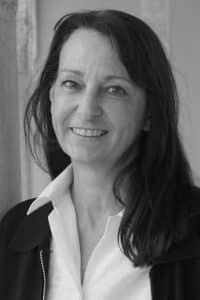
Having lived in different countries for many years (Gabon, Oman, Bahrain,Lithuania, Cyprus), Margot knows how to adapt her sessions and workshops to different audiences through listening and empathy combined with the energy needed to change and progress.
Knowing yourself and learning to listen to yourself opens up so many possibilities!
« Managing Stress » Workshop (Session 2)
Strengthen your body-mind connection, relax physical and mental tensions, refine your concentration, reconnect with your sensations.
This workshop is built for:
1/ Become aware of your body, release tension
2/ Calm inner speech and parasitic thoughts, clarify the mind
3/ Get in touch with your emotions and intuition
4/ Be aware of your limits so as not to get hurt
5/ Project yourself more serenely towards the future
In Sophrology , we will practice BREATHING exercises , Dynamic Relaxations ( gentle body movements) and positive VISUALIZATIONS . This, sitting on a chair or standing.
This technique is based on non-judgment, a benevolent intention towards oneself,
listening and conscious presence.
Simple option : morning class, every day
Reinforced option: all group lessons + 3 individual sessions

Having lived in different countries for many years (Gabon, Oman, Bahrain,Lithuania, Cyprus), Margot knows how to adapt her sessions and workshops to different audiences through listening and empathy combined with the energy needed to change and progress.
Knowing yourself and learning to listen to yourself opens up so many possibilities!
Improvisation and creation (Session 2)
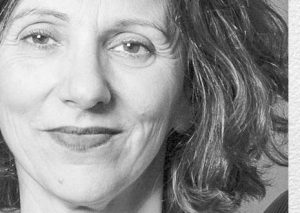
Yehudi Menuhin
This workshop is for all musicians who want to discover improvisation. It is open to all instrumental levels. The workshop is divided into several stages to guide each participant through this discovery in a structured and progressive way. Through simple, fun exercises that everyone can do, each participant gradually gains the confidence to improvise.
By putting aside the score for a while, we open the door to all that music we’ve accumulated within ourselves, to all our inner possibilities of expression, to our “musical song”.
Several aspects of improvisation can be tackled: tonal improvisation in a variety of classical and popular styles on given forms and/or free improvisation in sound exploration of play modes.
Preparation with group games based on bodywork and theatrical improvisation to release creative energy.
– Tonal improvisation in a variety of classical and popular styles on given forms
– Work on tones, rhythms, rhythmic formulas, etc.
– Discovering ways of playing the instrument and collective free improvisation games.
– Choice of medium (poem/invented story/cartoon, etc.)
– Invention of a musical itinerary and public performance (optional)
The simple option takes the form of a workshop: 5 to 6 workshops per session lasting 50 to 60 minutes.
The strengthened option consists of 3 individual sessions lasting around 45 minutes, with improvisation work in the style requested by the student.
Students enrolled in the reinforced option also have access to the workshop
Cellist and improviser Agnès Vesterman, with extensive experience working with artists such as Vincent Courtois and Joëlle Léandre, guides participants towards free, creative musical expression.
Professor of chamber music at the CNSMDP, cello teacher at the CRR de Boulogne-Billancourt and trainer at the Pôles Supérieurs, she has integrated the multiple aspects of her experience into her teaching and guides participants towards free, creative musical expression.
Massage (Session 1)
In Ayurveda, every massage has a therapeutic purpose, essentially to help the body restore its healthy balance. A massage will contribute to:
- Relax the body – Release tensions and knots
- Helping the mind calm down – improving focus and creativity
- Stimulate the lymphatic and circulatory system
- Strengthen the immune system
- Help the digestive system
- Nourish and treat the skin in depth
Concretely:
Hot oil massages of the whole body or only certain parts (back, neck, hands, feet, stomach, etc.). Choice made with the person.
Different massage intensity depending on needs.
Strengthened option only: 3 hours of massage in total to be distributed according to the person’s needs

as one’s mind, 15 years ago, Margot decided to focus on supporting others. Yoga, Ayurveda
(nutrition & massages ) and Sophrology allow us to approach each person in their entirety
and best meet their needs. Whether we first treat the body or the mind, the main thing is to
find Harmony and balance to be healthy and full of energy and VITALITY. Massages are an integral part of this medicine, both preventative and curative.
Ayurveda also considers lifestyle, diet, physical exercise, sleep, and medicinal plants as essential elements to help maintain good health.
PEP® and Mental Training
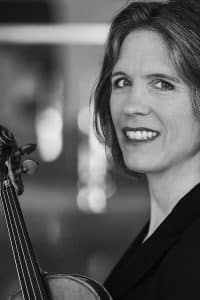
It is aimed at all instrumentalists.
The short and focused interventions allow you to feel more comfortable in exam situations, to work on your instrument in the best conditions and to succeed in performing at your best level.
This mental preparation can also be focused on preparation for orchestral competitions for all instruments (PEP, mental work on instrument technique + structure and preparation planning).
By stimulating neural networks (tapping on acupuncture points, rolling the eyes, humming, counting, saying affirmations, etc.), thought, feeling and behavior patterns are changed.
PEP® helps to detect unconscious blocks and negative thoughts that can be the source of stress and stage fright and to overcome them. It improves one’s relationship with oneself and with others and provides protection against burnout and secondary traumas.
The basic method – a special sequence of tapping – can easily be learned in a group.. For learning, it is enough to imagine the particular moment of unpleasant and stressful feeling and to tap at the same time. Learning this technique provides emotional support in any stressful situation, either in the workplace or in everyday situations.
PEP® private coaching allows you to work on personal themes, to become aware of negative thoughts and to replace them with “positive immunization phrases”. Complemented with mental training techniques, a PEP® coaching session can trigger a process of transformation and personal development by giving access to the positive resources of the unconscious and the power of the imagination.
Felicia Terpitz, a violin soloist, winner of several international competitions, concertmaster in an orchestra, and violin teacher for 20 years, began her certified “Mental Training” during the summer of 2020 lockdown. As a mother of three children, she sees the increased suffering of young people in the face of a distant school system reduced to individual learning on the computer. Finding herself at the point of not being able to learn new pieces on the violin, Felicia Terpitz decides to search for the “What, How, Why…” of our thoughts.
This research led him to realize with greater awareness the importance of the body for psychic well-being. Between June and October 2021 she attended the PEP® training course at Michael Bohne and trained in this method with which she has been working ever since with great success, especially with musicians.
Felicia Terpitz, specializes in the development of sound and self-expression in connection with self-acceptance complemented by body exercises and mental techniques.
Qi Gong (Session 1)
Meaning “cultivation of energy”, it can be considered as a chinese form of yoga.
Generally very gentle regarding its physical aspects, we work thanks to an understanding of chinese traditional medicine (chi, meridians, organs). We practice a series of 5 postures according to the Universal Healing Tao system of master Mantak Chia (with breath and visualisations).
Here are the main benefits :
- better breathing
- disapearance or decrease of physical discomforts (back pain etc.)
- emotional balance
- better digestion
- muscle and joint strenghtening
- better mobility (balance, flexibility…)
- good digestion
- anchoring in the present moment
- reduction of anxiety
- better sleep quality
- anchoring in the present moment
- better knowledge of self
- better sleep quality
- emotional balance
- harmonisation of social relationships
Class content
Group classes take place once a day : either at 12:30 or at 17:30
Private classes are on demand
Simple option : the student can attend 4 group classes
Reinforced option : the student can attend as many group classes as he or she wants and has access to private lessons (1 hour or 2×30 min)
(times are indicative and can be modified to allow all students to participate).
Sinclair Smith, Yoga teacher will teach Qi Gong.
F. M. Alexander Technique (Session 1)
Opened to every person wishing to find tools for a better postural balance bringing more well-being and freedom and less stress. These courses are aimed at musicians who are learning, performing or already teaching.
The Frederick Matthias Alexander Technique is a method which allows the redeployment of the muscular system by avoiding the useless tensions. It helps the body by helping to stop with bad conscious or unconscious postures. It allows to develop a better ” use of oneself ” respectful of the body.
The FM Alexander technique aims for adopting good postural habits through 5 procedures. These procedures will help the student to release muscular tension, to play without hindrance and with lightness, thus giving him more speed and fluidity.
The F.M. Alexander technique will be taught by Claire Brunaud during sessions 1 and 2.
Piano teacher, holder of a Master’s degree in Music and Musicology from Paris-IV Sorbonne University with the speciality Music and Arts-Plastique, Claire Brunaud is also holder of a diploma delivered by the Training center of Technique Alexander ( CFTA) of Paris.
Since then, she is training musicians, dancers and comedians. She is also teaching music music theory and musical awakening in a dynamic and physical prospect.
She has also perfected her choral conducting skills with various conductors.
Claire Brunaud is a teacher of musical training at the CRR of Cergy Pontoise and also a teacher of musical training for dancers at the Conservatoire Paul Dukas – Paris 12.
Claire Brunaud is also involved in another artistic domain through the painting and through the illustration.
Class content
Claire Brunaud works on 4 group classes and 2 individual classes of 30 to 45 minutes. The first four classes are collective. They take place every other day in order to let the body operate changes between each class. Then, Claire Brunaud gives 2 individual classes. During the last individual class, the student brings his instrument to enable him to practice what he will have learnt during that session.
F.M. Alexander Technique (session 2)
The Alexander Technique helps you rediscover a good postural balance, a harmony between muscle tone and relaxation, essential for vocal and instrumental practice. Singers and instrumentalists can improve their proprioception, learning to perceive and change bad habits. Fine-tuned perception of one’s own gestures enables one to think of oneself as an Instrument Body, and avoid pain and local lesions such as tendonitis or dystonia…
This psychophysical technique teaches you to manage stage fright and rediscover the pleasure of performing.
Class content
Alba Isus offers 4 group classes and 2 individual classes of 30 to 45 minutes. For one-to-one lessons, students can bring their own instrument for practice.
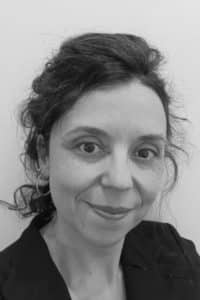
Since then, she has taught the Alexander Technique at the CRC in Rosny sous Bois and at various training organizations.
At the Conservatoire, she transmits the tools of the Alexander Technique to singers, instrumentalists, dancers and actors.
She performs regularly with the Chœur de Radio France, the Opéra Nomade company and the Ensemble Zoroastre.
Yoga (Session 1)
The word Yoga means union, connection. Therefore, practicing yoga is about uniting, harmonizing the different facets of one’s life. It is both an art, a science and a philosophy, but it can also rhyme with physical activity, relaxation and well-being.
Based on the principles of ayurveda (traditional Indian medicine), it brings you closer to the principle of full health (swasta).
It acts deeply and efficiently on mental, emotional and physical levels :
- better breathing
- mental clarity
- emotional balance
- physical well-being
- disapearance or decrease of physical discomforts (back pain etc.)
- better mobility (balance, flexibility…)
- better digestion
- muscle and joint strenghtening
- loss of body fat
- increased focus
- anchoring in the present moment
- reduction of anxiety
- better sleep quality
- reconnection to the values of benevolence and respect
- harmonisation of social relationships
- better knowledge of self
- inner peace
According to our needs, many techniques are available :
- Asanas are the postures of Yoga,
we will discover 20 of them, with great enjoyment and artistry.
- Pranayamas are the breathing techniques,
we will explore 4 of them, which will greatly enhance your automatic breathing patterns.
- Samadhi is the result of meditation :
recovering the authenticity of the child’s mind with the maturity of the adult’s.
- Good living :
Yoga considers that every thought, spoken word and action impacts human beings and their level of well-being in their globality, that is why our relationship to sleep, food, information, the unconscious, other people etc. is primordial
Since a very young age, Sinclair has been living close to yoga thanks to his grandmother. When he was 9, he tried for the first time – thanks to a book – the breathing techniques (pranayama) which gave him an idea of how extraordinary these practices are. It was such a deep experience that it remained with him ever since. At the age of 24 he started practicing the postures which enabled him to cure serious health issues. Since then he never stopped teaching this art of living and keeps on studying and practicing, sometimes during long study trips in India, as its culture with all its paradoxes are an important dimension of his path.
Class content
Group classes take place once a day : either at 12:30 or at 17:30
Private classes are on demand
Simple option : the student can attend 4 group classes
Reinforced option : the student can attend as many group classes as he or she wants and has access to private lessons (1 hour or 2×30 min)
Times are indicative and can be modified to allow all students to participate.
Yoga is a window on all the techniques humanity has developped since the dawn of time to understand what it actually is and how to live best. In every culture we can find pearls of wisdom, which can be collected or practiced. One of the most beautiful of those treasures is the realisation that “everything” we really need is already inside of us. But
attaining this “everything” requires a little bit of work… Sinclair teaches in the corporate world and gives private lessons in Geneva, Switzerland and organizes yoga retreats in the south of Spain. He also proposes Life Sessions (holistic coaching*) which help reach one’s full potential of wisdom, clarify one’s life purpose and eventually blossom. *taking into account all aspects of human life
Yoga (Session 2)
This class will be an alternation of 2 types of Yoga: one in movement, the other in stillness.
Vinyasa Yoga is a flow of postures, strengthening the muscles and thus improving daily posture. By using Breath, it supports all functions of the body, allows energy to flow and also supports the mind and concentration abilities.
The Yin Yoga is practiced while gentleness, in stillness, using breathing to release tension or blockages and bring you to listen to your limits and your needs. No pain, we don’t force, we listen to ourselves and let go.
Yin Yoga acts at the level of the FASCIAS therefore in depth, without there being any warming up of the muscles. The practice is done lying on a mat and the use of cushions or blocks so that each person adapts the posture according to their possibilities ( each body is different ).
It is first of all a physical well-being that is felt, which then awakens mental and emotional well-being.
In my classes, no posture is imposed, everyone practices according to their abilities of the day, their desires and following their feelings. Performance is forgotten here to make way for listening.
The daily practice that this course offers is great for feeling the effects on the body and mind:
– Reduce stress and mental tension
– Reduce back pain
– Sleep better
– Restore flexibility in joints and gain mobility
– Regain energy
– Improve self-awareness
Simple option : 1 hour lesson every day
Strengthened option : all group lessons + 3 individual sessions

singularity.
Having lived in different countries for many years (Gabon, Oman, Bahrain, Lithuania,
Cyprus), Margot knows how to adapt her sessions and workshops to different audiences
through listening and empathy combined with the energy needed to change and progress.
Knowing yourself and learning to listen to yourself opens up so many possibilities!
Ping-Pong (Session 1)
Following the Lebrun brothers’ exploits in 2024, table tennis – an Olympic sport since 1988 that has managed to appeal to both amateurs and professionals – has significantly grown in popularity. Indeed, it is a dynamic activity that requires quick reflexes and perfect coordination, while remaining accessible to everyone.
Whether played in pairs or groups, table tennis fosters a friendly and relaxed atmosphere. It is a great way to share moments of pleasure and relaxation, while strengthening social ties.
At the crossroads of technique and psychology, ping pong develops several important aspects of physical and mental health:
- Improving coordination
- Developing reflexes
- Improving agility
- Strengthening concentration
Table tennis is the perfect activity to relax with friends, challenge yourself, and improve your skills during your spare time.
Course organization:
- Simple option: the student can attend 4 group classes
- Reinforced option: the student can attend as many group classes as he or she wants and has access to 1h30 of private lessons
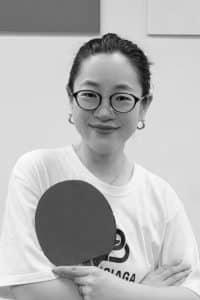
She began practicing the sport at the age of 4 with her father, a coach in the Liaoning province – a gathering place for table tennis players. Indeed, many international champions such as Ma Long, Chu Qin Wang, and Sun Ying Sha, started their careers in this province.
At the age of 5, she joined a municipal sports school and was taught by professional coaches throughout her 13-year career. She took part in major competitions and tournaments in Liaoning, winning the title of champion on several occasions.
At the age of 10, she attended a high-level training course with the Chinese national team in Beijing.
Today, Mei Sheng continues to practice table tennis in clubs and actively participates in various sports events.

you want to register?



